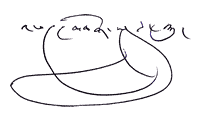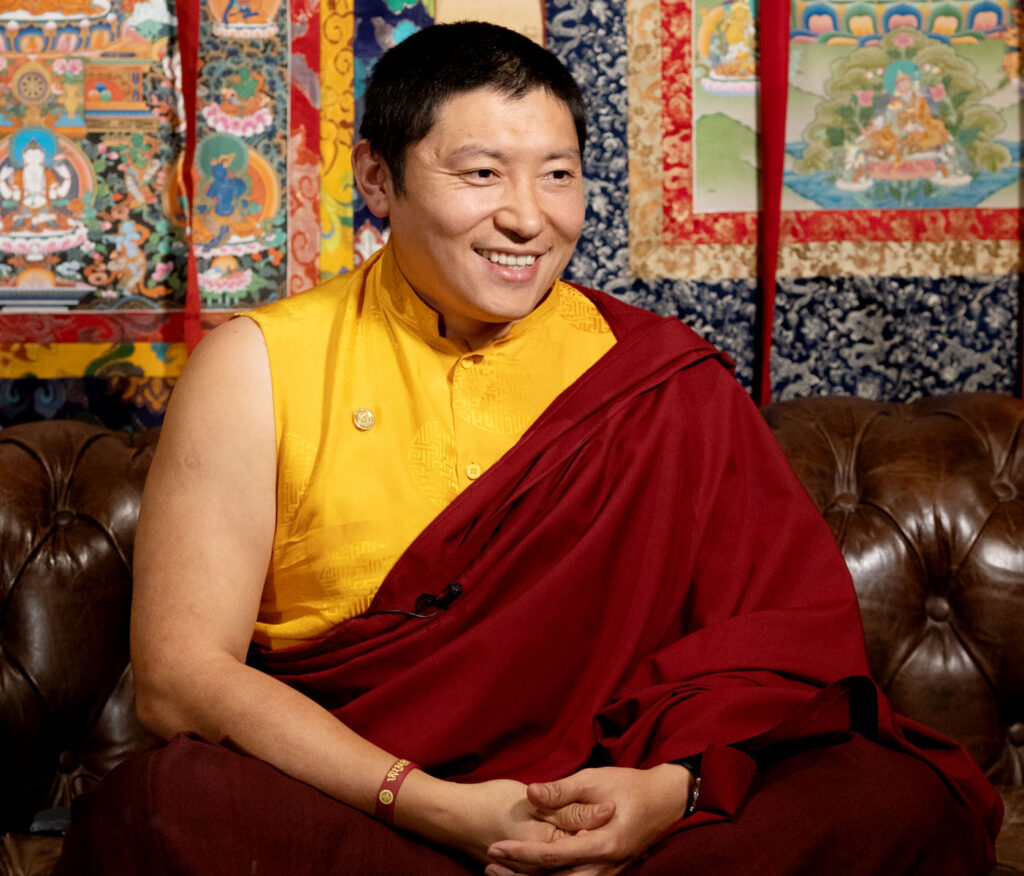Dear friends near and far
Today my topic is the sixth chapter of The Way of the Bodhisattva, and I would like to talk about the three different levels of patience. The first level of patience is based on an understanding of karma, cause and effect. Karma means that when you do something in a good way (like performing a good action or having a good thought) you get a corresponding result. Conversely, when you have an unpleasant thought or do something negative then you get unpleasant results. This is very important to understand when you practice patience. In daily life when you encounter problems, things that make you angry or upset, or any really difficult situations, first of all you really need to think about your own karma, because after all, although the conditions for what you are seeing are because of other people, the degree to which we experience it as pleasant or unpleasant is the choice of the person who sees; it’s your choice. So when being patient, we first of all, need to understand karma. That is very important.
The second level of the practice of patience is based on compassion, based on an understanding of suffering and the cause of suffering. It is like a mother who has an understanding of her spoilt ignorant child who is doing something wrong; the mother has a lot of patience. She understands that the child has the problems of ignorance and the emotions. So in the same way, when you see some people making you upset, making things really difficult, or something happens to you in the day and people make you angry then you need to understand that everyone making you angry has a reason from their own life.
We need to understand that part of it. We shouldn’t judge right away and get angry just based on what we see. We should look more behind the face of the situation and try to understand the other people who are making us angry. Those other people are having problems themselves—that is why they are creating problems for you. So you need to understand well about the cause of suffering, the emotions that people have. Therefore, based on an understanding of compassion, we again need to practice patience.
The first level of patience I talked about is based on karma. Actions have results, so depending on whether your action is positive or negative then you get positive or negative results. With this understanding, you have the first level of patience. Being patient doesn’t only mean that you don’t react—you really need to be cautious or careful about what kind of thoughts are in your mind in the present moment and also afterwards, as sometimes we have feelings of regret. Regret that you didn’t act, fight back, scold, or ask provocative questions. So that is why you really have to think. Patience doesn’t only mean that you don’t react with body and speech. I am talking right now about being more cautious about your thoughts. Second, I talked about the level of patience based on compassion, which means understanding more the situation behind others’ actions, understanding how the other people are suffering and that that is why they are making problems for you. So that is very impor¬tant to understand.
The third aspect of patience is based on an understanding that everything is emptiness. Many people, like me for example, when practicing patience think, “I am practicing patience”, but that is a very limited kind of patience. Practicing patience just based on an understanding of karma is a limited patience; you can become tired very easily. With compassion, we can practice patience more effectively, but again we can become tired easily. But who is it who really suffers? Who is the sufferer? And who is it who is really making you pissed off, making you angry? Where is your anger, your unpleasant thoughts? To see they are emptiness is not to just have an intellectual understanding, but to practice with conscientiousness, careful¬ness, and mindfulness in daily life. That is very important.
For example, like me—I just arrived back in Nepal two days ago and right away, without any time to really rest, I have already started looking after the monasteries and taking care of problems that have cropped up. Of course, in order to do that I need to practice patience! So you shouldn’t make yourself a time in the future saying, “Okay, then I’ll start practicing patience.” Patience means having no hatred in your mind, no anger, to be without any unpleasant thoughts in your mind, even subconsciously, so it is very important—you need to look deep inside yourself and practice patience and compassion.
So, the first type of patience is the patience based on karma. The second type is based on compassion, and the third is the patience based on an understanding of emptiness. And how to practice that? Most of you know the practice of burjom that I talked about in the small booklet of mind training, the Eightfold Supreme Path of Mind Training. Burjom means to tame our negative emotions as soon as they arise. Don’t express them. Don’t suppress them, and don’t ignore them. That is very important to understand. So practicing patience right now is very important.
I pray for you all to have good health, long life, harmony, and to practice well in daily life.
Sarva Mangalam,

Phakchok Rinpoche






Responses